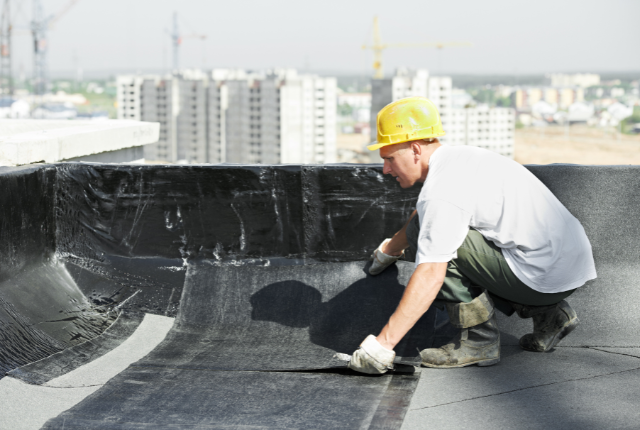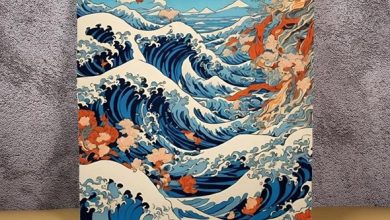In the realm of commercial roofing, choosing the right coating material can significantly influence the longevity and effectiveness of a roof. New Jersey, with its diverse climate, presents a unique set of challenges that demand a robust roofing solution. Among the many options available, silicone roof coatings have emerged as a popular choice due to their exceptional durability and weather resistance. This article will delve into the reasons why silicone roof coatings are particularly suitable for New Jersey’s climate, their benefits, and how they compare with other roofing solutions. Additionally, we’ll explore the importance of partnering with a reliable emergency roofer NJ and why flat roof repair NJ often incorporates silicone coatings as a preferred method.
Understanding Silicone Roof Coatings
Silicone roof coatings are liquid-applied membranes that cure to form a seamless and flexible layer on the roof surface. These coatings are primarily composed of silicone polymers, which provide excellent moisture resistance and UV stability. The unique properties of silicone make it highly effective in preventing leaks, resisting ponding water, and reflecting harmful UV rays.
Key Properties of Silicone Roof Coatings:
- Elasticity and Flexibility: Silicone roof coatings are known for their high elasticity, allowing them to expand and contract with temperature changes without cracking. This is particularly crucial in New Jersey, where the temperature can fluctuate dramatically between seasons.
- UV Resistance: Silicone coatings are highly resistant to UV rays, which helps in reducing the degradation of the roofing material over time. This resistance also contributes to the longevity of the roof and helps maintain its reflective properties, reducing the overall energy costs for cooling.
- Water Resistance: One of the most notable features of silicone roof coatings is their ability to resist water. Unlike other coatings that can degrade or lose their adhesion when exposed to ponding water, silicone maintains its integrity, making it an ideal choice for flat roofs.
- Low VOCs: Silicone roof coatings are typically low in volatile organic compounds (VOCs), making them an environmentally friendly option for roofing.
The Climate Challenges in New Jersey
New Jersey experiences a humid subtropical climate with cold winters and hot, humid summers. The state is also prone to frequent rainstorms, hurricanes, and snowfall, all of which can take a toll on commercial roofs. The need for a roofing solution that can withstand these varying conditions is paramount for building owners in the region.
How Silicone Roof Coatings Address Climate Challenges:
- Extreme Temperature Tolerance: The elasticity of silicone allows it to endure the extreme temperature changes common in New Jersey. Whether it’s the sweltering heat of summer or the freezing temperatures of winter, silicone coatings can expand and contract without losing their effectiveness.
- Ponding Water Resistance: New Jersey’s frequent rainstorms and the potential for snowfall accumulation can lead to ponding water on flat roofs. Unlike other coatings that might degrade under such conditions, silicone remains impervious to standing water, preventing leaks and water damage.
- Wind and Storm Resilience: During hurricanes or strong storms, roofs are subjected to high winds and debris impact. Silicone coatings, with their strong adhesion and flexibility, can resist damage from such events better than many other roofing solutions.
Benefits of Silicone Roof Coatings for NJ Buildings
Longevity and Cost-Effectiveness
One of the primary advantages of silicone roof coatings is their longevity. A properly applied silicone coating can last up to 20 years or more with minimal maintenance. This durability translates into cost savings over time, as the need for frequent repairs or replacements is significantly reduced.
Moreover, the reflective properties of silicone can lead to energy savings. By reflecting a substantial portion of the sun’s heat, silicone-coated roofs can help lower indoor temperatures, reducing the load on HVAC systems and, consequently, energy bills.
Seamless Application
The seamless nature of silicone coatings eliminates the vulnerabilities associated with seams, joints, and fasteners that are common in traditional roofing systems. This seamless application minimizes the risk of leaks and water infiltration, providing a more robust and secure roofing solution.
Environmentally Friendly Option
Silicone roof coatings are also an environmentally friendly choice due to their low VOC content and the potential to reduce energy consumption. Additionally, many silicone coatings are formulated to be applied over existing roofing materials, which reduces the amount of roofing waste that ends up in landfills.
Easy Maintenance and Repair
Maintaining a silicone-coated roof is relatively simple. Regular inspections and occasional cleaning to remove debris are usually sufficient to keep the roof in optimal condition. If damage does occur, repairs are straightforward, as new silicone can be applied directly over the existing coating without the need for extensive preparation.
The Role of Emergency Roofers in NJ
In New Jersey, the importance of having a reliable emergency roofer NJ cannot be overstated. Severe weather conditions can lead to unexpected roof damage, necessitating immediate repairs to prevent further issues. Emergency roofers who specialize in silicone roof coatings can quickly assess damage, apply necessary repairs, and ensure that the roof remains protected.
Why Choose an Emergency Roofer with Silicone Expertise?
- Rapid Response: Emergency roofers who are experienced with silicone coatings can provide a rapid response to urgent situations, minimizing downtime and preventing further damage to the property.
- Expert Application: Proper application of silicone coatings requires specific expertise. An emergency roofer with experience in silicone can ensure that repairs are done correctly, maintaining the integrity and durability of the roof.
- Preventative Measures: Beyond emergency repairs, a skilled roofer can also recommend preventative measures, such as regular inspections and maintenance, to extend the life of the silicone-coated roof.
Addressing Flat Roof Repair in NJ with Silicone
Flat roofs are particularly prevalent in commercial buildings across New Jersey. While they offer several advantages, such as efficient use of space and ease of access, they are also more susceptible to issues like ponding water and leaks. Flat roof repair NJ often incorporates silicone coatings due to their superior performance in such conditions.
Silicone Coatings for Flat Roofs:
- Leak Prevention: The seamless application of silicone coatings makes them highly effective in preventing leaks, a common issue with flat roofs.
- Durability in Harsh Conditions: As discussed, the ability of silicone to resist water, UV rays, and extreme temperatures makes it an ideal solution for flat roofs in New Jersey.
- Cost-Effective Repair: When a flat roof requires repair, applying a silicone coating can often be more cost-effective than a full roof replacement. The coating can be applied over the existing roof, sealing any cracks or leaks and extending the roof’s life.
Comparing Silicone with Other Roofing Solutions
While silicone coatings offer numerous benefits, it’s important to consider how they compare with other roofing solutions commonly used in New Jersey.
Acrylic Coatings:
Acrylic coatings are another popular choice for commercial roofs. They are known for their cost-effectiveness and reflectivity. However, acrylics are less resistant to ponding water and may require more frequent reapplication compared to silicone.
Asphalt and Tar Roofs:
Asphalt and tar roofs are traditional roofing solutions that offer good durability and are relatively inexpensive. However, they are heavier, more prone to cracking, and require more maintenance than silicone coatings.
Polyurethane Coatings:
Polyurethane coatings are highly durable and resistant to foot traffic, making them a good choice for roofs that see frequent use. However, they are typically more expensive than silicone and may not offer the same level of UV resistance.
Conclusion
Silicone roof coatings offer a combination of durability, weather resistance, and cost-effectiveness that makes them an excellent choice for commercial buildings in New Jersey. Their ability to withstand the state’s diverse climate challenges, from intense UV exposure to frequent rainstorms, ensures long-lasting protection for flat roofs. By partnering with a reliable emergency roofer NJ and incorporating silicone coatings into flat roof repair NJ, building owners can enhance the longevity and performance of their roofs while reducing overall maintenance costs.
In a state where weather conditions can be unpredictable, investing in a silicone roof coating is a proactive step toward safeguarding your property and ensuring peace of mind for years to come.




